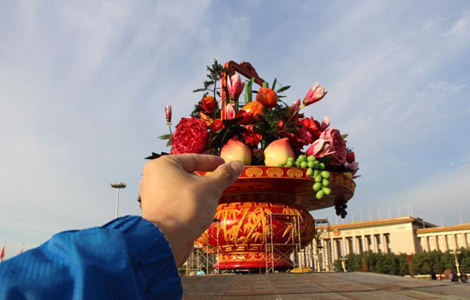Employee claims Danone gave bribes
Updated: 2013-09-24 02:41
By Zhou Wenting (China Daily)
|
||||||||
Whistle-blower says corporation approved medical staff kickbacks
A whistle-blower claims the French company Danone bribed hospital staff in seven provinces and municipalities in an effort to promote its baby formulas for newborns and experts say such practices are part of the unspoken rules in the industry.
Danone, which markets its infant formula under the brand Dumex, gave kickbacks that amounted to nearly 500,000 yuan ($81,700) to medical staff in seven provinces and municipalities in northern China in April alone, Beijing Times reported on Monday, citing a whistle-blower from the company.
Those statistics are for only one of the six sales regions on the Chinese mainland, the newspaper said.
The employee also said the budget for paying doctors and nurses was approved by corporate headquarters.
The article came after China Central Television reported on Sept 16 the company gave commissions to doctors and nurses at several hospitals in Tianjin, who in return promoted their products or gave babies the product without notifying the parents.
"Definitely Dumex isn't the only company that does this practice. Some enterprises have a department to promote their products to hospitals," said Wang Dingmian, former vice-chairman of the Guangdong Dairy Industry Association.
"The dairy businesses have to carefully maintain relationships with hospital staff, which technically means giving them sufficient benefits. They might be replaced by competitors in the next few months otherwise," he said.
Wang said it is a form of public relations for milk powder suppliers to approach medical staff in the fiercely competitive market, even paying for their domestic and international holidays.
A report by global marketing research company AC Nielsen showed Dumex had 11.7 percent of the market share of infant formula sold in China in 2012, second only to United States-based Mead Johnson, which had a market share of 12.3 percent.
Companies are not allowed to give samples or products of infant formula to hospitals or offer them money or inducements to promote the products, according to the Administrative Measures for Marketing of Breast-milk Substitutes issued in 1995.
After the CCTV report, Dumex China said in a statement that it is extremely shocked and will immediately launch an investigation.
The statement has not been updated, and phone calls to Lu Minfang, general manager of Dumex China, went unanswered as of press time on Monday.
"The company claimed it didn't know until the exposure and tried to regard it as personal behavior," said a senior executive of a foreign infant formula company, who declined to be named. "That is impossible. The topic (how to promote products in hospitals) is included in the training of some companies."
A nurse at a well-known hospital in Shanghai said mothers usually bring baby formula products to the hospital in case they are unable to breastfeed right after giving birth.
China Daily talked to five parents of newborn babies in Shanghai and Wuhan, Hubei province, and four said hospital staff never recommended or provided baby formula of any specific brand to them.
One father in Shanghai said he was given a can of Abbott Laboratories formula after his wife gave birth to a girl at Shanghai First Maternity and Infant Hospital in August.
"The doctor told us to switch to other brands after at least one month, but we didn't feed the baby the product at all," said the father, who requested to be unnamed.
Zhou Xinxin, public relations supervisor at Breastfeeding and Nurturing, a Beijing-based nongovernmental organization committed to promoting breastfeeding, said most hospitals now have tough management to prevent commercial bribery.
An online survey conducted by the organization in November, which received more than 1,700 responses, showed only 38 percent of newborns drank breast milk for their first feed after birth, compared to nearly 40 percent who had infant formula.
Experts say the next step is to see whether the government will take stringent measures, such as anti-monopoly rules, to curb such practices.
Hong Kong's experience may be applicable on the mainland, Wang said.
"Hong Kong allows baby formula enterprises to enter hospitals, transparently, but the brands change every few months to prevent a monopoly. Otherwise the medical staff will be disqualified," he said.
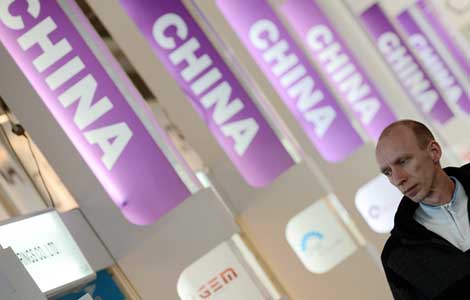
 China's investment a 'job-saver' in Europe
China's investment a 'job-saver' in Europe
 Pollution control plan to slash PM2.5
Pollution control plan to slash PM2.5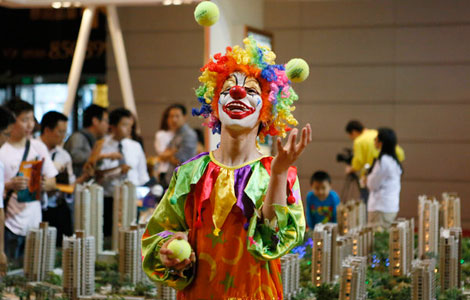
 The beauty and beasts of selling hot houses
The beauty and beasts of selling hot houses
 Tian'anmen's flowery moments for National Day
Tian'anmen's flowery moments for National Day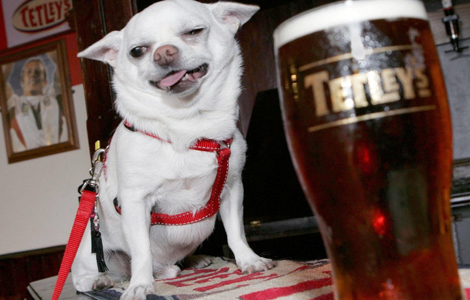
 When animals meet beer
When animals meet beer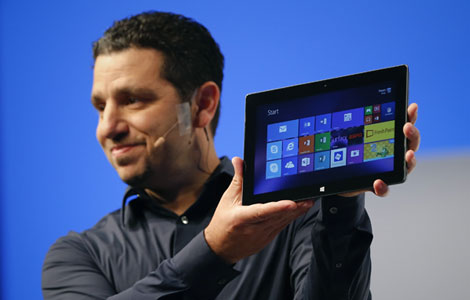
 Microsoft revamps Surface to challenge Apple
Microsoft revamps Surface to challenge Apple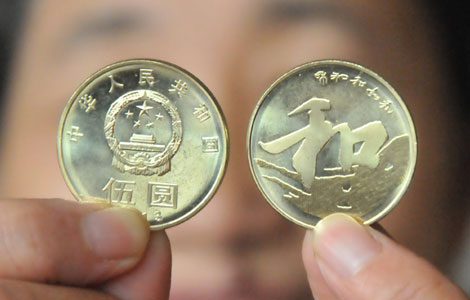
 Gold rush for new coin
Gold rush for new coin
 China's growth: Fundamental challenges still remain
China's growth: Fundamental challenges still remain
Most Viewed
Editor's Picks
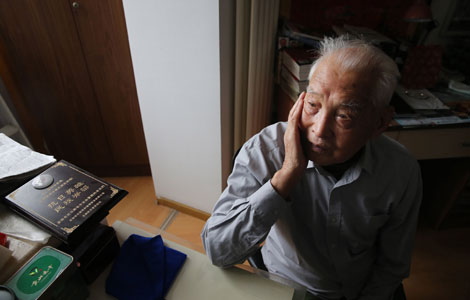
|
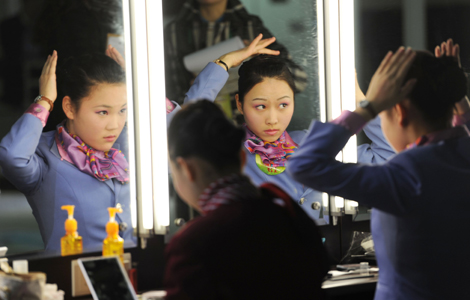
|

|

|

|

|
Today's Top News
93 killed as quake hits SW Pakistan
Smithfield deal 'great' for US shareholders: CEO
China expects to complete space station by 2023
China rebukes US drone reports
New top trader coming to stage
UN General Assembly starts debate
China aims to attract more foreign students
Microsoft enters China's gaming market
US Weekly

|

|


